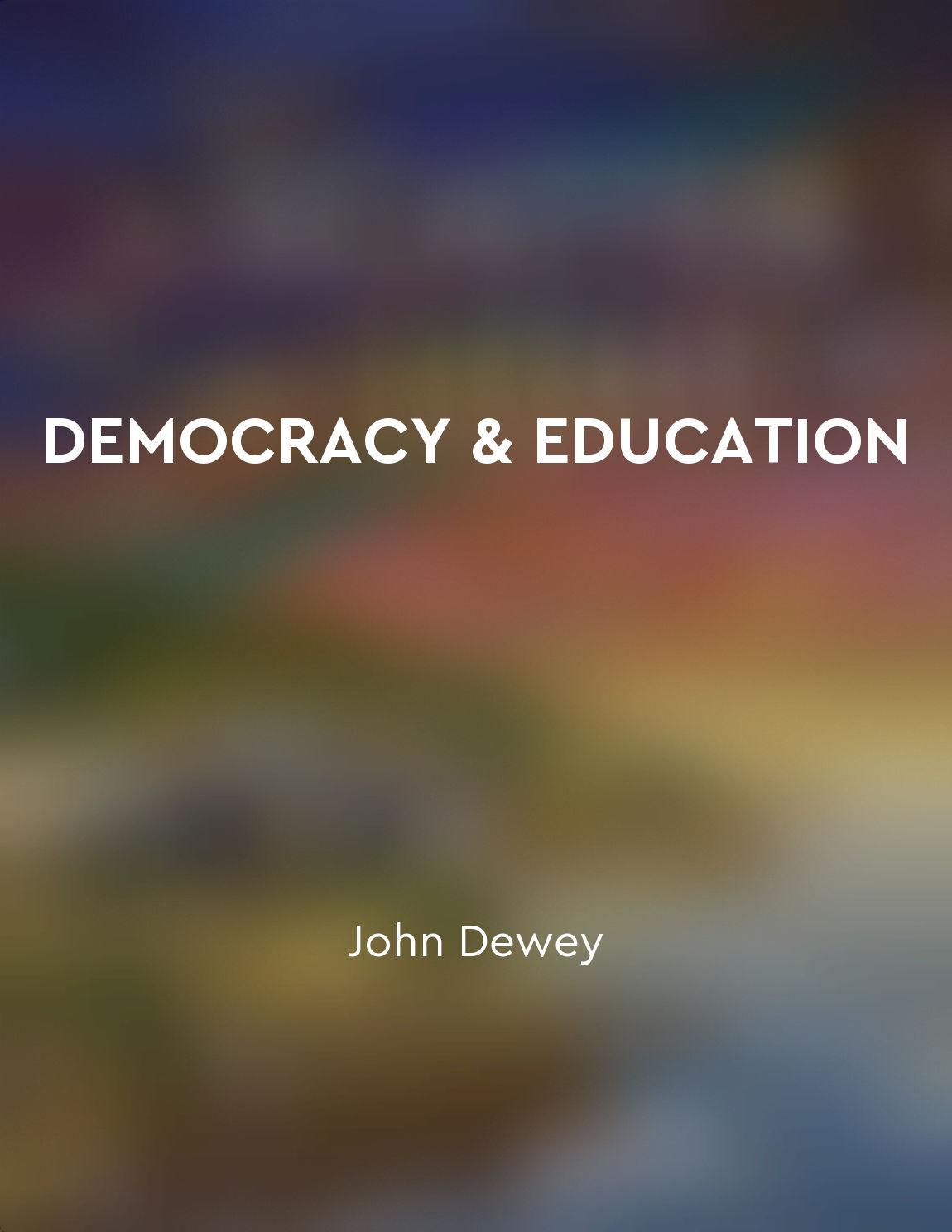Education should prepare students for democratic participation from "summary" of DEMOCRACY & EDUCATION by John Dewey
The purpose of education is not simply to impart knowledge and skills, but to cultivate the habits and dispositions necessary for active participation in a democratic society. In a democracy, individuals must be able to think critically, communicate effectively, and work collaboratively with others to address complex problems. Education plays a crucial role in developing these capacities in students. By fostering an understanding of democratic principles and practices, education can empower students to engage meaningfully in the political process. This requires more than just teaching students about the structure of government; it involves helping them develop the skills and attitudes needed to participate as informed and responsible citizens. This includes the ability to critically evaluate information, engage in respectful dialogue with others, and take collective action to promote the common good. Furthermore, education should help students recognize the importance of diversity and inclusion in a democratic society. By exposing students to a wide range of perspectives and experiences, education can help them appreciate the value of different voices and viewpoints. This can foster a sense of empathy and solidarity that is essential for building a more just and equitable society. In addition, education should promote a sense of agency and empowerment among students, encouraging them to see themselves as active agents of change in their communities. By providing opportunities for students to take on leadership roles, pursue their own interests, and make a positive impact on the world around them, education can help cultivate a sense of civic responsibility and engagement.- The goal of education in a democracy should be to prepare students to become active and informed participants in their communities and in society at large. By equipping students with the knowledge, skills, and dispositions needed to engage meaningfully in democratic processes, education can help cultivate a more just, inclusive, and participatory society.
Similar Posts
He examines the role of the judiciary in safeguarding individual rights
Tocqueville delves into the critical function of the judiciary in upholding the rights of individuals within a democratic socie...
Benefits of a wellrounded education
A well-rounded education is like a treasure chest that holds a wealth of knowledge and skills that can benefit individuals in v...
Liberal education fosters citizenship
The idea that liberal education plays a critical role in fostering good citizenship is not a new one. Throughout history, philo...
Liberal arts are relevant
In today's rapidly changing world, many question the relevance of a liberal arts education. The prevailing belief is that in a ...
Democracy values the protection of minority rights
The concept that democracy values the protection of minority rights is a fundamental pillar of any democratic society. Democrac...
Democracy is a dynamic and adaptive system
Democracy is not a fixed or unchanging system. It is not a static set of rules and procedures that remain unchanged throughout ...
Democracy values the protection of minority rights
The concept that democracy values the protection of minority rights is a fundamental pillar of any democratic society. Democrac...


